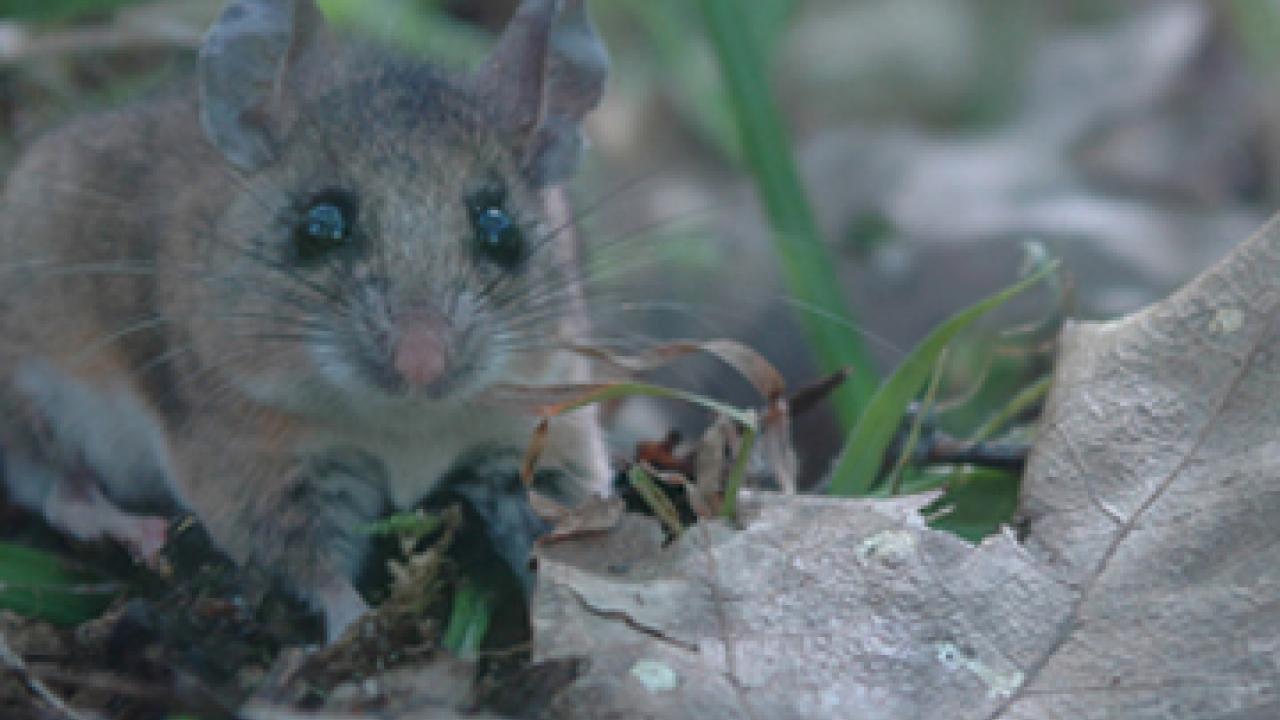When young mice leave their mothers' homes, the offspring choose to live in places much like the ones where they were raised, according to research done at UC Davis.
It may not sound surprising, but it is actually a revelation for biologists trying to save endangered wildlife, who have largely assumed that when it comes to habitat preferences, one size fits all for the individuals in a given species.
To test that assumption, ecologist Karen Mabry clipped little radio collars the size of thin pinky rings around the necks of 18 young brush mice while they were still living where they were born. Then she followed them around on the wooded and chaparral-covered hillsides of the UC system's Quail Ridge Reserve until they settled elsewhere and started their own families.
Although the mice born in the woods visited the chaparral and easily could have chosen to live there, and vice-versa, they did not, Mabry said.
"A lot of the computer models that researchers use to predict the population dynamics of species make an assumption that there is such a thing as a best habitat, and what is best for one individual is best for everybody," Mabry said. "This research makes it clear that may not be the case."
Mabry's findings, published online by the journal Proceedings of the Royal Society B: Biological Sciences, could help improve the odds that animals will stay put in their new homes when they are moved for conservation purposes.
They also may shed light on the factors that cause speciation — the evolutionary change by which one species splits into two.
Mabry's study arose from her doctoral thesis, written at UC Davis under Professor Emerita Judy Stamps in the Section of Evolution and Ecology. Mabry is now a postdoctoral researcher at Miami University of Ohio.
ON THE NET: "Dispersing Brush Mice Prefer Habitat Like Home"
Media Resources
Dave Jones, Dateline, 530-752-6556, dljones@ucdavis.edu
